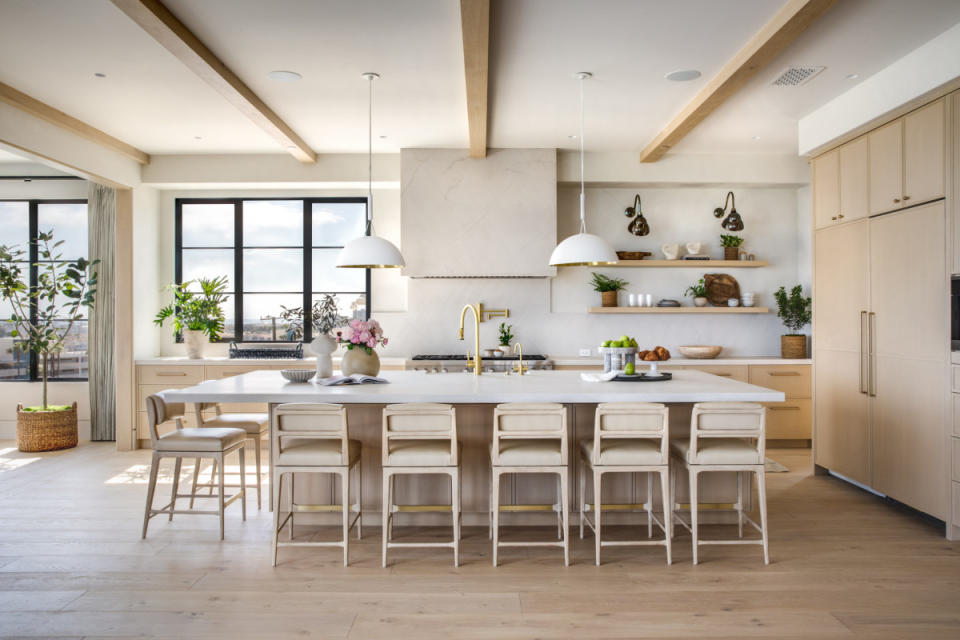Is Engineered Quartz the New Granite?
Natural stone countertops continue to lose ground in favor of other popular materials for kitchen countertops.
Houzz shared its insights on the two materials in its 2024 Kitchen Trends Study, in which it surveyed U.S. homeowners who are updating kitchen counters, or have updated countertops, as part of a completed, current or planned kitchen remodel. "Engineered quartz has notably increased in popularity as a countertop material, rising by 4 percentage points compared with the previous year," the study shared. The rise isn't insignificant. In 2022 and 2023, quartz was favored by 42% of respondents. A jump to 46% has us thinking twice about kitchen remodeling trends.
At the same time, granite surfaces, which already trailed quartz, have taken a sharp downturn. In 2022, 24% of respondents favored natural granite stone; it dipped to 23% in 2023 and further down to 20% in 2024.
In some respects, this is surprising. In a time when consumers are more focused on sustainability and environmentally-friendly building materials, it's interesting to explore how a natural material would shift downwards in demand. While engineered quartz manufacturers and the negative side effects of airborne silica and polymer resins in factories have been a heated debate, consumers are still drawn to the product for its range of benefits compared to natural products.
5 Reasons Consumers Favor Quartz over Granite
Consistent appearance. Quartz offers uniform appearance, unlike granite's natural variations. Furthermore, it's available in a range of colors, including solid colors, as well patterns, including stone-like patterns.
It's durable. It's resistant to minor scratches and stains, ideal for active kitchens. Granite counters are more heat resistant, but quartz counters can stand up to more heat than other options in the industry.
Non-porous surface. Granite countertops are a porous material and can stain easily, but wines, oils, coffee stains can easily be cleaned off an engineered quartz surface with mild soap.
Super low maintenance. Unlike granite slabs, quartz doesn't need to be sealed.
Price. While some varieties can be pricier per square foot, quartz offers value in durability and consistency. The selection process for granite matching slabs of granite can be hard if you need a lot.

Legacy CDM Inc./Craig Hampton/Brooke Wagner/Mellon Studio
Quartzite vs. Engineered Quartz
Consumers often confuse engineered quartz and quartzite because of their similar names and both being used in countertops. However, they are distinct materials with different compositions and characteristics.
Engineered Quartz
Man-made with crushed quartz and resins.
Wide range of colors and patterns.
Highly durable, resistant to scratches and stains.
Non-porous, easy to clean.
More affordable than natural stone.
Quartzite
Natural stone formed from quartz grains.
Unique veining, natural appearance.
Extremely durable and hard.
Requires sealing to protect against staining.
Generally more expensive than engineered quartz.
Related: Houzz’s Kitchen Trends Study Notices Trend in Kitchen Island Size

